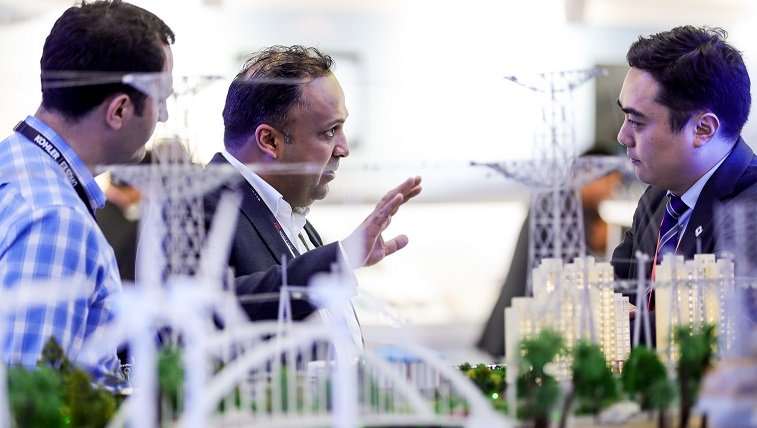
Solar energy key to the future of smart buildings in the region
Speaking ahead of the ‘Digitalisation in Energy Conference,’ which will run at the Dubai World Trade Centre starting tomorrow, Marc Helfter, Disruptive Innovation Director for the electrical installations solutions provider, Hager Group, said the region’s future ‘smart’ buildings will be totally electric powered.
 Helfter, who is to present a ‘Smart Building in Action’ case-study at the conference said the region’s high sunshine penetration rate – running at 1747 kWh/kWp/year in Dubai – made solar the obvious choice to power buildings but solutions needed to be supported by storage infrastructures.
Helfter, who is to present a ‘Smart Building in Action’ case-study at the conference said the region’s high sunshine penetration rate – running at 1747 kWh/kWp/year in Dubai – made solar the obvious choice to power buildings but solutions needed to be supported by storage infrastructures.
“Within the region solar has by far the biggest potential but to be fully efficient, PV installations have to be combined with energy storage solutions,” he said. “The future will be fully electric. Mobility, heating, cooling will become electric. Buildings will go from passive to active as they produce a part of their energy then exchange information and energy with the grid.
“In this way, smart buildings will play a role in the electric eco-system. Renewable energies need storage capacities and flexibility. Buildings connected to the grid can provide services, in terms of flexibility to utilities or grid operators.”
The impact of smart buildings and office space is one of three seminars which make up the ‘Digitalisation in Energy Conference’, which is part of Middle East Energy, previously known as Middle East Electricity
“Smart buildings are a key component of the Middle East and Africa’s smart cities market which has been forecast by KPMG to be worth $2.7 billion by 2022,” explained Claudia Konieczna, Exhibition Director, Middle East Energy. Throughout the region there is rising public sector ambition to become a global leader in smart cities, with Dubai in the vanguard and smart buildings and work environments will be crucial to delivery of these goals.
“The Digital conference will feature cutting-edge content from those at the very forefront of the revolution with delegates gaining insights and access to key players from across the full industry value chain including relevant Government related entities, utility providers, developers, investors, manufacturers, automation providers, academics, R&D specialists and engineers,” added Konieczna.
Other ‘Digitalisation in Energy Conference‘ sessions will focus on Digital Grids and Digital Future Cities. The conference is part of an expanded Middle East Energy knowledge programme which, for the first time, includes a high-level plenary sessions summit providing specific market information.
A third conference, devoted to Renewables, also features in the wider, free-to-attend, knowledge programme which features over 30 conference sessions, over 150 speakers and represents 25 hours of learning opportunities.